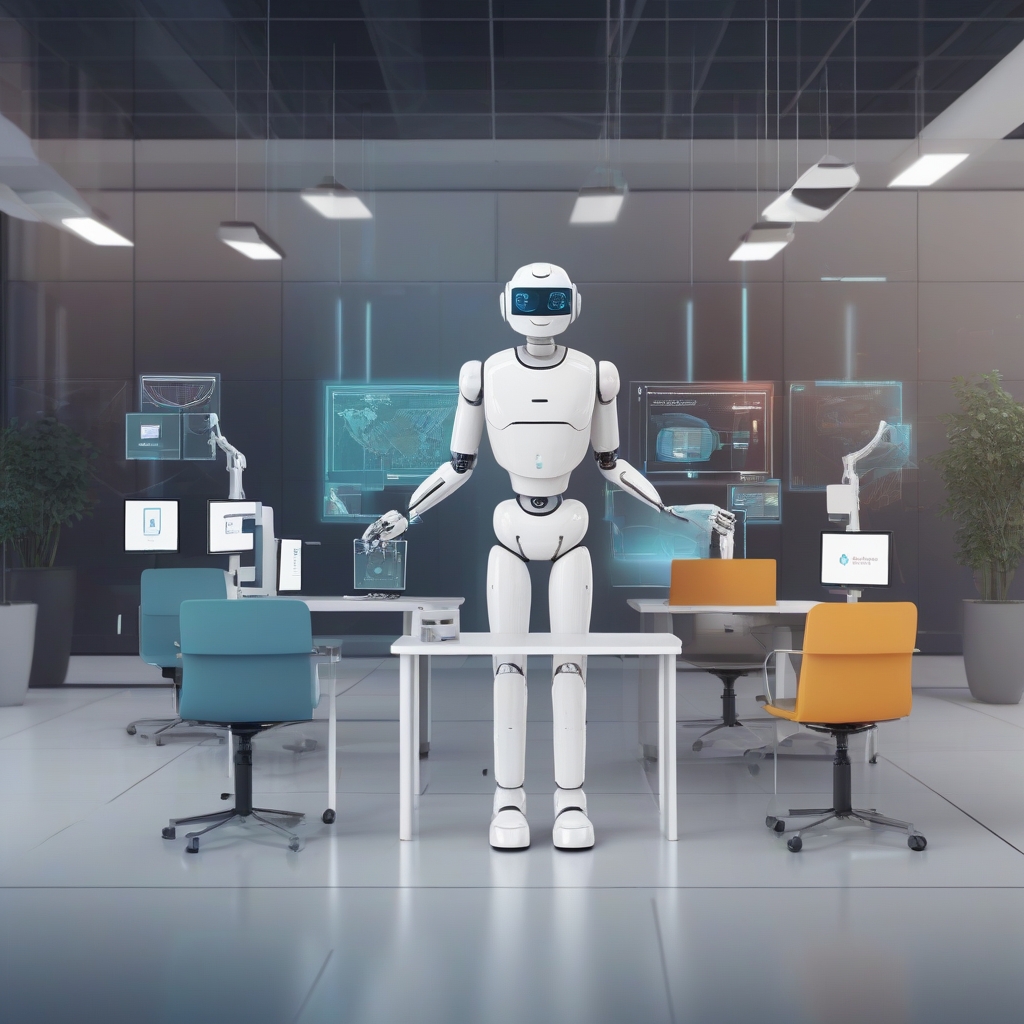Introduction
In today’s rapidly evolving business landscape, artificial intelligence (AI) has taken center stage, offering diverse and innovative solutions across various sectors. By examining three distinct AI deployments—in a call center, a healthcare facility, and a retail store—we can unlock valuable insights into the effective use of AI technologies. This article explores these deployments and highlights the practical, actionable lessons that can be drawn from them.
AI in a Call Center: Enhancing Customer Service and Efficiency
AI has revolutionized call centers by automating routine tasks, enhancing customer experience, and increasing operational efficiency. Let’s delve into how AI is being deployed in this setting:
1. **Chatbots and Virtual Assistants**
Chatbots and virtual assistants have become the frontline of customer interaction in many call centers. These AI-driven tools can:
- Handle common queries
- Provide instant responses
- Operate 24/7
By doing so, they free up human agents to focus on more complex issues that require a personal touch.
2. **Predictive Analytics and Call Routing**
Predictive analytics helps call centers anticipate customer needs by analyzing historical data. This AI tool can:
- Route calls to the most suitable agent
- Reduce wait times
- Improve first-call resolution rates
Takeaway Lessons for Businesses
For businesses looking to deploy AI in their customer service operations:
- Utilize chatbots for handling routine queries to improve efficiency
- Implement predictive analytics to optimize call routing and enhance customer satisfaction
- Invest in training human agents to handle more complex interactions that require empathy and creativity
AI in Healthcare: Transforming Patient Care
The healthcare industry has embraced AI for its potential to transform patient care, operational efficiency, and clinical outcomes. Here are some ways AI is making a difference:
1. **Clinical Decision Support Systems**
AI-powered clinical decision support systems provide healthcare professionals with:
- Data-driven insights
- Real-time alerts
- Personalized treatment recommendations
These systems analyze patient data to support medical decisions, thereby improving diagnostic accuracy and treatment efficacy.
2. **Medical Imaging and Diagnostics**
AI excels in processing large datasets, making it particularly useful in medical imaging and diagnostics. AI tools can:
- Analyze medical images (X-rays, MRIs, CT scans)
- Detect anomalies and patterns
- Assist in early disease detection
Takeaway Lessons for Healthcare Providers
For healthcare providers aiming to integrate AI into their practice:
- Adopt AI-driven diagnostic tools to improve accuracy and early detection of diseases
- Use clinical decision support systems to enhance patient care and treatment outcomes
- Ensure continuous professional development for healthcare staff to effectively leverage AI tools
AI in Retail: Enhancing Customer Experience and Operational Efficiency
In the retail sector, AI is helping businesses meet and exceed customer expectations while streamlining operations. Let’s explore some significant AI applications in retail:
1. **Personalized Recommendations**
AI algorithms analyze customer data to offer personalized product recommendations. This application can:
- Enhance the shopping experience
- Increase customer loyalty
- Boost sales
2. **Inventory Management**
AI-driven inventory management systems optimize stock levels and reduce waste. These systems can:
- Predict demand
- Automate reordering processes
- Minimize stockouts and overstock situations
Takeaway Lessons for Retailers
Retailers looking to harness the power of AI should consider:
- Implementing AI-driven personalized recommendation systems to enhance customer satisfaction
- Adopting automated inventory management solutions to streamline operations and reduce costs
- Leveraging customer data to gain insights and tailor marketing strategies
Conclusion
AI deployment in call centers, healthcare facilities, and retail stores offers a glimpse into the future of business operations. These technologies not only improve efficiency and productivity but also enrich the customer and patient experience. By learning from these real-world examples, businesses in any sector can effectively integrate AI solutions to drive innovation and maintain a competitive edge.
Ultimately, the key to successful AI deployment lies in the seamless collaboration between human expertise and advanced AI tools. Businesses that strike this balance will be well-positioned to navigate the complexities of the modern marketplace.

Leave a Reply